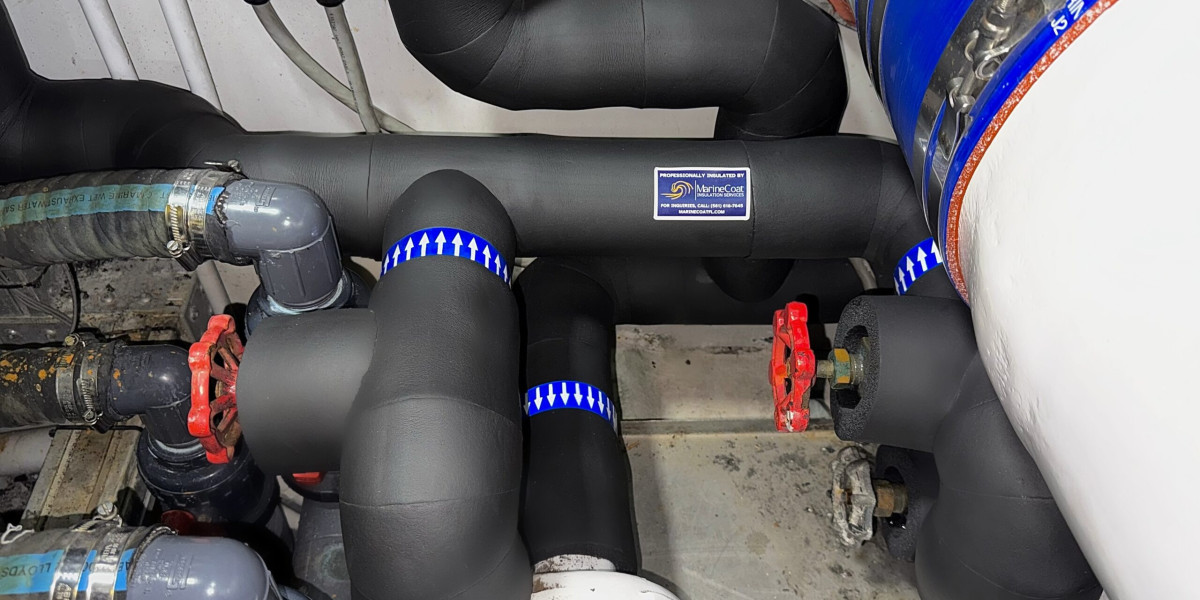Marine insulation is crucial for maintaining operational efficiency, safety, and sustainability in offshore platforms and oil rigs. The challenges presented by the harsh marine environment demand advanced insulation materials and methods. Effective insulation protects not only the structural integrity of offshore rigs but also enhances energy efficiency, reduces operational costs, and mitigates environmental impacts. This article explores innovative marine insulation solutions tailored for the offshore industry, focusing on their importance in optimizing performance and ensuring long-term reliability.
Understanding Marine Insulation
Marine insulation plays a pivotal role in various applications, particularly in offshore platforms and oil rigs. These installations operate in extreme weather conditions, where temperatures fluctuate significantly, and exposure to saltwater and corrosive elements accelerates wear and tear. Without proper insulation, energy loss is rampant, maintenance costs soar, and safety becomes a concern due to excessive heat or cold.
Marine services that provide insulation solutions aim to enhance both the comfort and performance of these platforms. The primary function of marine insulation is to prevent heat transfer, whether for maintaining temperature on pipelines or insulating the engine rooms. It’s also vital for minimizing noise levels, ensuring operational efficiency, and protecting against fire hazards. Therefore, insulation materials are carefully chosen for their resistance to high moisture, temperature extremes, and corrosion.
Importance of Marine Insulation in Offshore Platforms
The complexity of offshore platforms requires the use of advanced insulation systems to address several key issues: thermal protection, acoustic dampening, and corrosion resistance. With the increasing focus on energy efficiency and environmental sustainability, choosing the right marine insulation solutions becomes even more critical.
Thermal Protection
Thermal management is one of the most important functions of marine insulation. Offshore platforms often deal with extreme temperature variations, which can lead to efficiency losses in equipment and systems. Effective marine insulation prevents unnecessary heat loss or gain, ensuring the machinery operates within optimal temperature ranges. By regulating the temperature, marine insulation solutions reduce the energy consumption of HVAC systems, pumps, and electrical systems.
Acoustic Insulation
Noise reduction is another essential aspect of insulation on oil rigs. Offshore oil rigs are noisy environments, with constant operations of heavy machinery and equipment. Marine insulation solutions help minimize the disruptive effects of noise, improving the working conditions for offshore personnel. Acoustic insulation materials such as foam, fiberglass, and mineral wool are used to absorb sound and prevent vibration transmission.
Fire Safety
Fire safety is a significant concern in the oil and gas industry, where the risk of fires can result in catastrophic consequences. Marine insulation plays an important role in fire prevention by providing fire-resistant barriers to prevent heat from spreading quickly in the event of a fire. Insulation materials used in offshore oil rigs are often treated to be fire-resistant or include coatings that provide additional protection against flames.
Marine Insulation Materials Used in Offshore Oil Rigs
The selection of appropriate insulation materials is essential for optimizing performance and longevity in offshore platforms and oil rigs. Marine services utilize various materials depending on the specific requirements of the installation, such as temperature, humidity, and the risk of chemical exposure.
Mineral Wool
Mineral wool is one of the most commonly used materials for marine insulation. It is known for its excellent thermal and acoustic properties, as well as its fire-resistant capabilities. The material is made from natural rock and is effective at withstanding high temperatures while also reducing noise levels. It’s used extensively in piping, engine rooms, and the hull of offshore rigs.
Calcium Silicate
Calcium silicate is another robust material used for marine insulation. It is highly durable and resistant to high temperatures, making it ideal for applications in steam lines, hot water systems, and exhaust pipes on offshore platforms. Calcium silicate is non-combustible and provides outstanding thermal insulation in extreme conditions.
Fiberglass
Fiberglass insulation is widely used in the marine sector due to its flexibility and ability to perform under varying conditions. It is often used in applications requiring thermal insulation and noise reduction. Fiberglass is lightweight and offers significant resistance to corrosion, making it suitable for harsh marine environments.
Polyurethane Foam
Polyurethane foam is often used for insulation on offshore oil rigs due to its exceptional insulating properties and moisture resistance. It is applied in areas that need insulation from both heat and cold, such as in the insulation of walls, ceilings, and tanks. This foam is highly effective in reducing heat loss and can be sprayed directly onto surfaces.
The Benefits of Marine Insulation Solutions for Offshore Rigs
Incorporating high-quality marine insulation solutions into offshore platforms provides several significant benefits that contribute to operational success and safety.
Reduced Energy Consumption
Marine insulation helps offshore oil rigs maintain energy efficiency. By preventing heat loss or gain, the insulation reduces the need for external energy input. This contributes to lower fuel consumption, which results in reduced operational costs and less environmental impact. The enhanced thermal performance of equipment reduces the overall strain on engines and machinery, prolonging their lifespan.
Enhanced Safety and Protection
Safety is a paramount concern in the offshore oil industry, where hazards such as fires and hazardous material leaks can have devastating effects. Marine insulation solutions play an essential role in mitigating these risks by providing protective barriers that prevent the spread of heat and flames. Insulation materials can be customized to meet specific fire resistance requirements, ensuring that personnel are protected in case of emergencies.
Durability and Corrosion Resistance
The harsh marine environment is notorious for accelerating corrosion in structures, pipes, and systems. By incorporating marine insulation materials that resist corrosion, offshore platforms and oil rigs can withstand the damaging effects of saltwater and moisture. Materials such as calcium silicate and fiberglass offer excellent resistance to corrosion, ensuring longevity and reducing maintenance needs.
The Future of Marine Insulation in Offshore Platforms
As the offshore oil industry continues to evolve, so too does the technology behind marine insulation. New advancements in insulation materials and techniques are expected to provide even greater benefits in terms of energy efficiency, environmental sustainability, and worker safety. The integration of smart technologies into insulation systems may allow for real-time monitoring of thermal performance, further optimizing energy use and minimizing waste.
With an increasing push toward sustainable energy solutions, the development of marine insulation materials that support green energy initiatives will become a priority. This includes the use of eco-friendly materials, as well as solutions that can help reduce carbon footprints on offshore platforms.
Conclusion
Marine insulation is a vital component of offshore platforms and oil rigs, contributing to energy efficiency, safety, and operational reliability. By selecting the appropriate materials and implementing effective insulation solutions, marine services ensure that offshore installations can withstand the challenges posed by the harsh marine environment. With its numerous benefits, including reduced energy consumption, enhanced safety, and improved durability, marine insulation plays a critical role in maintaining the integrity and sustainability of offshore oil rigs.




